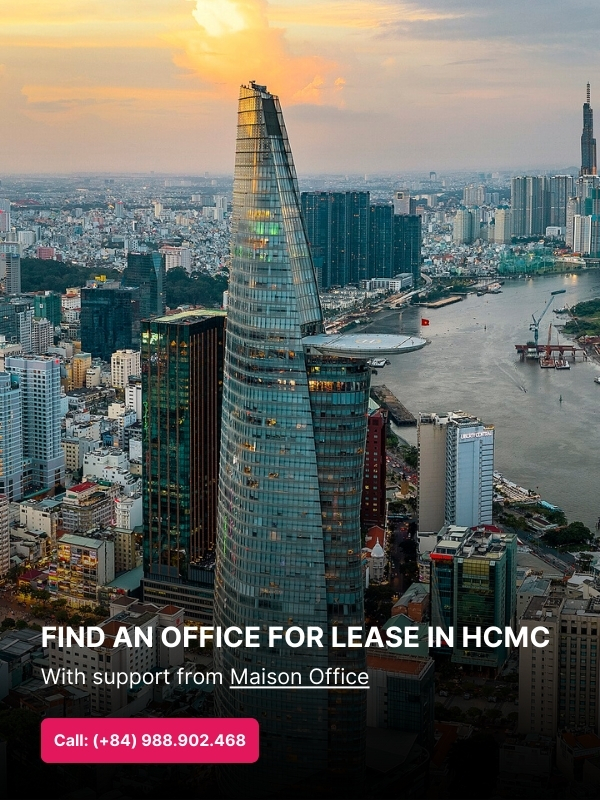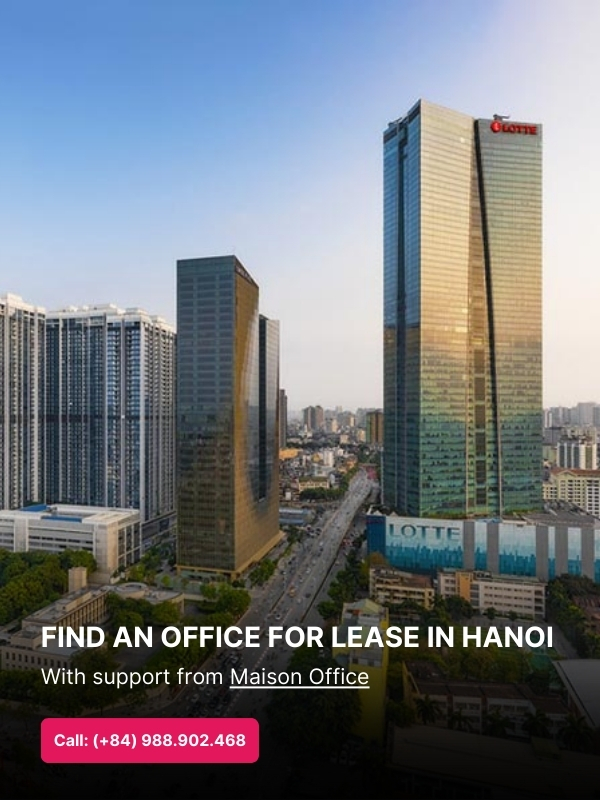How to set up a manufacturing company in Vietnam

Vietnam’s competitive labor costs and investor-friendly policies make it an ideal hub for manufacturing businesses. To establish a company, you must choose the right business structure, secure necessary licenses, and comply with local regulations. This guide outlines the key steps to help you set up your manufacturing company efficiently.
 |
 |
Table of Contents
Understanding the manufacturing landscape in Vietnam
The Law on Foreign Investment in Vietnam ( Law No. 61/2020/QH14), effective from January 1, 2021, establishes Vietnam as an attractive destination for manufacturing. It provides foreign investors streamlined registration processes, tax incentives, and access to developed industrial zones. With strategic Southeast Asian location, low labor costs ($150-200/month), and free trade agreements (EVFTA, CPTPP), Vietnam significantly attracts manufacturing-focused FDI, comprising over 64% of total FDI in 2023.
Key industries
Vietnam’s manufacturing sector thrives across diverse industries, notably electronics, textiles, automotive, and sustainable manufacturing. The Law on Foreign Investment in Vietnam offers incentives like tax exemptions for priority sectors. Electronics, led by companies like Samsung, attracts significant FDI, while textiles and footwear benefit from low labor costs and free trade agreements like EVFTA. High-tech and green manufacturing also gain support from government policies, presenting attractive opportunities for companies setting up manufacturing operations in Vietnam.
Lear more: Top 10 multinational companies in Vietnam

| Industry | Details |
| Electronics | Leading industry with major players like Samsung. Dominates FDI inflows, supported by tax exemptions (up to 4 years) under the Law on Foreign Investment in Vietnam. Ideal for a manufacturing company in Vietnam in high-tech sectors |
| Textiles and footwear | Key sector driven by companies like Nike and Adidas. Benefits from low labor costs ($150-200/month) and FTAs (e.g., EVFTA), making it a prime choice to set up a manufacturing company in Vietnam |
| Automotive | Emerging industry with incentives for high-tech production under the Law on Foreign Investment in Vietnam. Attracts investors aiming to set up a manufacturing company in Vietnam in advanced manufacturing |
| High-tech & Sustainable manufacturing | Growing focus with government support for green production. Offers opportunities for a modern manufacturing company in Vietnam, aligned with global sustainability trend |
Market trends and opportunities
As of 2025, Vietnam’s manufacturing landscape thrives due to supply chain shifts under the “China Plus One” strategy, driving significant FDI growth. Automation and digitalization enhance efficiency, especially in electronics and automotive sectors. High-tech industries and sustainable manufacturing offer promising opportunities, supported by favorable policies under the Law on Foreign Investment in Vietnam.

| Aspect | Details |
| Supply chain shift | The “China Plus One” strategy drives FDI, with $6.9 billion in the first two months of 2025 (up 35.5% YoY), boosting opportunities to set up a manufacturing company in Vietnam |
| Automation & Digitalization | Rising adoption of smart factories and automation in electronics and automotive sectors enhances efficiency for a manufacturing company in Vietnam |
| High-tech opportunities | Incentives under the Law on Foreign Investment in Vietnam support growth in high-tech industries, ideal for investors looking to set up a manufacturing company in Vietnam. |
| Sustainable manufacturing | Growing global demand for eco-friendly products creates a niche for a manufacturing company in Vietnam focusing on green production |
Legal framework and business structures
The Law on Foreign Investment in Vietnam (Law No. 61/2020/QH14), effective from January 1, 2021, provides a clear legal framework for foreign investors establishing manufacturing companies. Alongside the Law on Enterprises 2020, it details business structures, registration processes, and investor protections. With manufacturing representing over 64% of Vietnam’s FDI in 2023 and attractive incentives like tax exemptions, understanding these laws is crucial for success in this sector.

Types of business entities
When planning to set up a manufacturing company in Vietnam, investors typically consider these primary business structures:
| Criteria | 100% Foreign-Owned Company | Joint Venture | Business Cooperation Contract (BCC) |
| Definition | A fully foreign-owned entity with complete control, ideal for a manufacturing company in Vietnam | A partnership between foreign and local entities, suitable for a manufacturing company in Vietnam | A non-equity contract-based collaboration, flexible for a manufacturing company in Vietnam |
| Ownership | 100% foreign-owned, no local partner required | Shared ownership between foreign investor and local partner (ratio varies) | No ownership structure; based on contractual agreement between parties |
| Control | Full control by the foreign investor | Shared control, dependent on the joint venture agreement | Control varies by contract terms, no legal entity formed |
| Legal requirements | Requires IRC and ERC under the Law on Foreign Investment in Vietnam | Requires IRC, ERC, and a joint venture agreement under the Law on Foreign Investment in Vietnam | Requires a BCC agreement, no separate legal entity registration |
| Setup complexity | Moderate, involves standard registration with MPI for a manufacturing company in Vietnam | High, requires negotiation with local partner and additional approvals | Low, simpler process with fewer legal formalities to set up a manufacturing company in Vietnam |
| Industry suitability | Best for electronics, automotive, high-tech manufacturing | Ideal for textiles, footwear, leveraging local expertise for a manufacturing company in Vietnam | Suited for short-term or pilot projects in manufacturing |
| Advantages | Full autonomy, no local dependency, streamlined for a manufacturing company in Vietnam | Combines international and local strengths, market access benefits | Flexible, low legal complexity, quick to set up a manufacturing company in Vietnam |
| Disadvantages | Higher initial responsibility, no local support | Potential conflicts with local partner, complex setup | Limited long-term stability, no independent legal status |
Lear more: Types of Companies in Vietnam
Legal requirements
To set up a manufacturing company in Vietnam under the Law on Foreign Investment in Vietnam, foreign investors must follow a structured process involving multiple legal steps. Below is an elaboration of these requirements, designed to help you establish a manufacturing company in Vietnam efficiently:
| Step | Summary | Timeline | Legal basis |
| Investment Registration Certificate (IRC) | Required for projects over $800,000 to set up a manufacturing company in Vietnam. Filed with MPI | 15-30 days | Law No. 61/2020/QH14, Article 37 |
| Enterprise Registration Certificate (ERC) | Registers your manufacturing company in Vietnam as a legal entity. Filed with DPI | 3-5 days | Law No. 59/2020/QH14, Article 27 |
| Additional Permits (e.g., EIA) | EIA needed for factory operations; sub-licenses for conditional sectors like chemicals | 30-60 days (EIA) | Decree No. 40/2019/ND-CP, Article 9 |
| Post-Registration Compliance | Tax code, capital account, and factory licenses to operate a manufacturing company in Vietnam | 1-15 days | Circular No. 105/2020/TT-BTC |
Guide to setting up a manufacturing company in Vietnam
The Law on Foreign Investment in Vietnam (Law No. 61/2020/QH14) guides investors to set up a manufacturing company in Vietnam. Law effective since January 1, 2021. Manufacturing drives over 64% of Vietnam’s FDI in 2023. Offers tax exemptions for up to 4 years for a manufacturing company in Vietnam. A step-by-step guide simplifies establishing a manufacturing company in Vietnam.

Step 1: Choose the appropriate business structure
- Selecting a business structure is key to set up a manufacturing company in Vietnam.
- Governed by the Law on Foreign Investment in Vietnam.
- 100% Foreign-Owned Company: Full control for the investor, ideal for electronics or automotive manufacturing, suits a manufacturing company in Vietnam needing independence.
- Joint Venture: Partnership with a local entity, best for textiles or footwear industries, benefits a manufacturing company in Vietnam with local expertise.
- Business Cooperation Contract (BCC): Non-equity, contract-based collaboration, flexible for short-term projects, simplifies set up a manufacturing company in Vietnam without a legal entity.
Lear more: How to Set Up an FDI Company in Vietnam
Step 2: Secure a suitable location
- Securing a suitable location is a pivotal step to set up a manufacturing company in Vietnam, impacting logistics, costs, and compliance.
- Options include industrial zones (e.g., VSIP, Deep C), export processing zones, or high-tech parks, offering infrastructure and tax benefits for a manufacturing company in Vietnam.
- Industrial zones provide pre-built factories or land leases (up to 50 years), streamlining setup for industries like electronics or textiles.
- Location factors to consider: proximity to ports (e.g., Hai Phong, Ho Chi Minh City), access to raw materials, and labor availability.
- Foreigners cannot own land but can lease from the state or private entities, requiring a legal lease agreement under the Law on Foreign Investment in Vietnam.
Step 3: Prepare and submit necessary documentation
- Preparing and submitting documentation is essential to set up a manufacturing company in Vietnam under the Law on Foreign Investment in Vietnam.
- Key documents include an Investment Registration Certificate (IRC) application for projects over $800,000, detailing the project scope and financial capacity.
- An Enterprise Registration Certificate (ERC) application follows, specifying the business structure (e.g., 100% foreign-owned) for a manufacturing company in Vietnam.
- Additional paperwork may include a lease agreement for industrial zone land, plus an Environmental Impact Assessment (EIA) for factory operations.
- Submit to the Ministry of Planning and Investment (MPI) or provincial DPI; IRC takes 15-30 days, ERC 3-5 days, per legal timelines.
Step 4: Obtain licenses and permits
- Obtaining necessary licenses and permits is a critical step to set up a manufacturing company in Vietnam under the Law on Foreign Investment in Vietnam.
- An Environmental Impact Assessment (EIA) is required for factory operations, ensuring compliance with environmental standards; approval takes 30-60 days.
- Sub-licenses may apply for conditional sectors (e.g., chemicals, electronics), issued by ministries like the Ministry of Industry and Trade, within 15-45 days.
- Construction permits are needed for building or modifying facilities, processed by local authorities in 20-30 days for a manufacturing company in Vietnam.
- Post-registration, operational licenses (e.g., fire safety, factory operation) finalize legal readiness, typically secured within 5-15 days.
Step 5: Capital contribution and bank account setup
- Capital contribution and bank account setup are vital to set up a manufacturing company in Vietnam under the Law on Foreign Investment in Vietnam.
- Investors must contribute the registered capital (minimum varies by sector, e.g., $100,000 for manufacturing) within 90 days of ERC issuance.
- Capital can be cash, equipment, or technology, transferred to a direct investment capital account at a licensed Vietnamese bank.
- Opening this account requires the ERC and IRC (if applicable), typically completed in 5-10 days for a manufacturing company in Vietnam.
- Funds must comply with Vietnam’s foreign exchange regulations, ensuring smooth repatriation of profits later.
Learr more: How to Open a Bank Account in Vietnam as a Foreigner
Step 6: Recruitment and staffing
- Recruitment and staffing are key to operational success when you set up a manufacturing company in Vietnam under the Law on Foreign Investment in Vietnam.
- Investors can hire local workers (minimum wage $150-200/month) and expatriates, adhering to Vietnam Labor Law for Foreigners.
- Local talent is abundant, with a young workforce ideal for a manufacturing company in Vietnam, though specialized training may be needed.
- Work permits are required for foreign staff, processed within 7-15 days via the Ministry of Labor, Invalids and Social Affairs (MOLISA).
- Labor contracts must comply with regulations, ensuring fair wages and working conditions.
Setting up a manufacturing company in Vietnam is a strategic move, supported by the Law on Foreign Investment in Vietnam and its investor-friendly incentives. Establishing a manufacturing company in Vietnam offers immense potential, thanks to robust legal support and a dynamic market.
Looking for the ideal office space to support your manufacturing or trading business setup? Maison Office specializes in office for lease in Ho Chi Minh City and office for lease in Hanoi, Vietnam’s two most dynamic business hubs.




